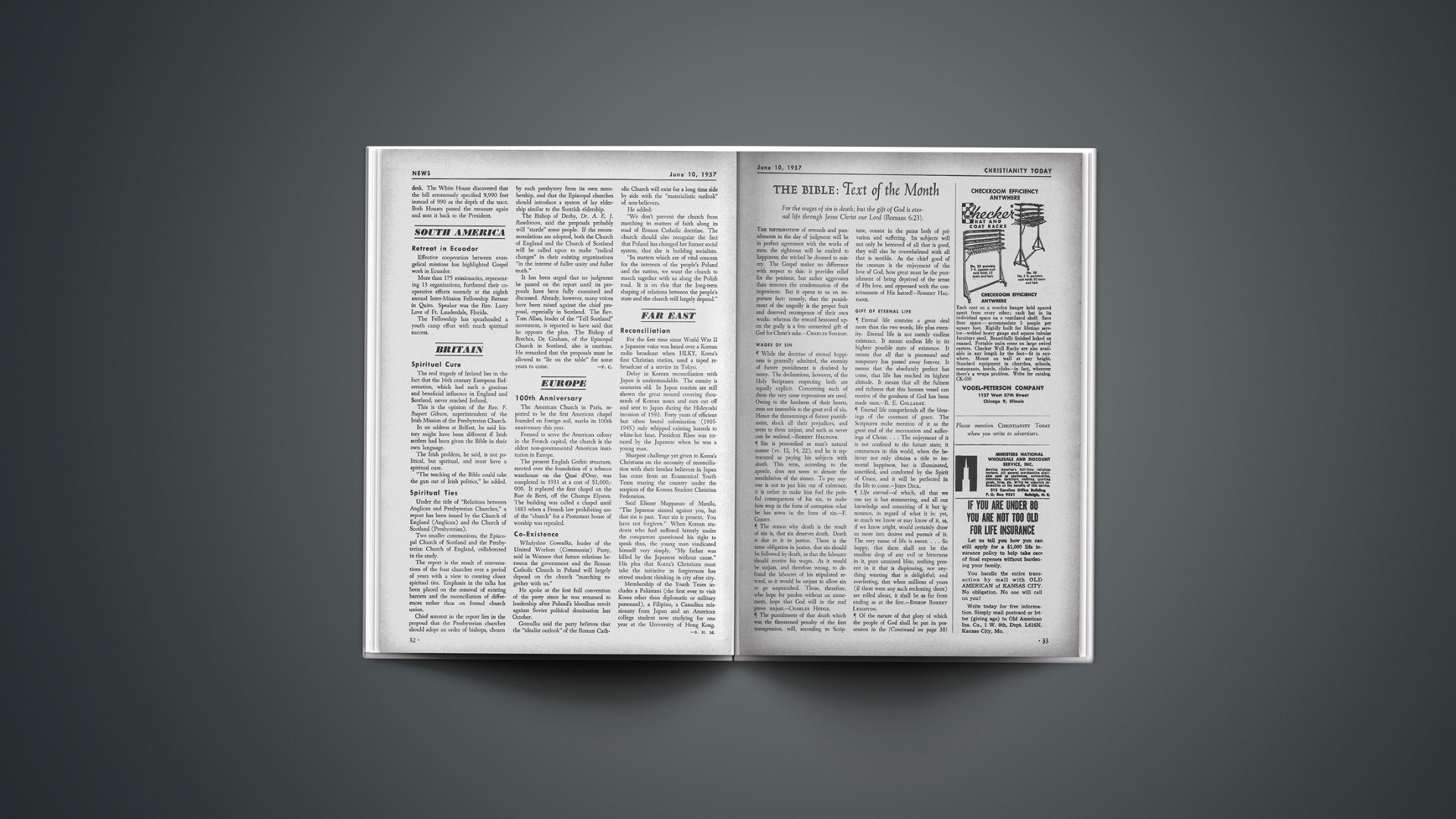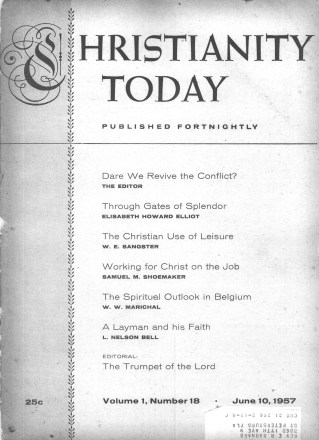Spiritual Cure
The real tragedy of Ireland lies in the fact that the 16th century European Reformation, which had such a gracious and beneficial influence in England and Scotland, never reached Ireland.
This is the opinion of the Rev. F. Rupert Gibson, superintendent of the Irish Mission of the Presbyterian Church.
In an address at Belfast, he said history might have been different if Irish settlers had been given the Bible in their own language.
The Irish problem, he said, is not political, but spiritual, and must have a spiritual cure.
“The teaching of the Bible could take the gun out of Irish politics,” he added.
Spiritual Ties
Under the tide of “Relations between Anglican and Presbyterian Churches,” a report has been issued by the Church of England (Anglican) and the Church of Scotland (Presbyterian).
Two smaller communions, the Episcopal Church of Scotland and the Presbyterian Church of England, collaborated in the study.
The report is the result of conversations of the four churches over a period of years with a view to creating closer spiritual ties. Emphasis in the talks has been placed on the removal of existing barriers and the reconciliation of differences rather than on formal church union.
Chief interest in the report lies in the proposal that the Presbyterian churches should adopt an order of bishops, chosen by each presbytery from its own membership, and that the Episcopal churches should introduce a system of lay eldership similar to the Scottish eldership.
The Bishop of Derby, Dr. A. E. J. Rawlinson, said the proposals probably will “starde” some people. If the recommendations are adopted, both the Church of England and the Church of Scotland will be called upon to make “radical changes” in their existing organizations “in the interest of fuller unity and fuller truth.”
It has been urged that no judgment be passed on the report until its proposals have been fully examined and discussed. Already, however, many voices have been raised against the chief proposal, especially in Scotland. The Rev. Tom Allan, leader of the “Tell Scodand” movement, is reported to have said that he opposes the plan. The Bishop of Brechin, Dr. Graham, of the Episcopal Church in Scotland, also is cautious. He remarked that the proposals must be allowed to “lie on the table” for some years to come.
—F. C.










